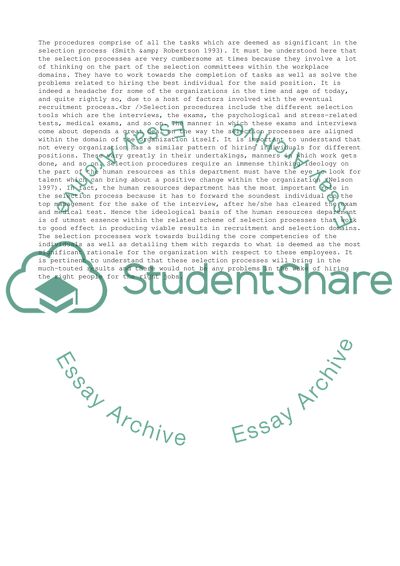Cite this document
(Todays Selection Processes are Impartial, Rational And Effective Term Paper, n.d.)
Todays Selection Processes are Impartial, Rational And Effective Term Paper. https://studentshare.org/business/1723352-todays-selection-processes-are-impartial-rational-and-effective-to-what-extent-is-this-statement-a-myth
Todays Selection Processes are Impartial, Rational And Effective Term Paper. https://studentshare.org/business/1723352-todays-selection-processes-are-impartial-rational-and-effective-to-what-extent-is-this-statement-a-myth
(Todays Selection Processes Are Impartial, Rational And Effective Term Paper)
Todays Selection Processes Are Impartial, Rational And Effective Term Paper. https://studentshare.org/business/1723352-todays-selection-processes-are-impartial-rational-and-effective-to-what-extent-is-this-statement-a-myth.
Todays Selection Processes Are Impartial, Rational And Effective Term Paper. https://studentshare.org/business/1723352-todays-selection-processes-are-impartial-rational-and-effective-to-what-extent-is-this-statement-a-myth.
“Todays Selection Processes Are Impartial, Rational And Effective Term Paper”. https://studentshare.org/business/1723352-todays-selection-processes-are-impartial-rational-and-effective-to-what-extent-is-this-statement-a-myth.


